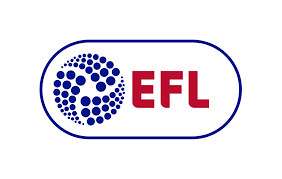By Paul Nicholson
October 16 – English Football League (EFL) clubs have rejected the £50 million offer for financial support from the Premier League following the collapse of the ‘Big Picture Project’ proposal that would have seen them receive a £250 million covid bail out.
Meeting to discuss the £50 million offer that was tabled for League One and League Two clubs, the EFL countered that any offer had to be for all 72 of its member clubs, emphasising the importance of unity across their three divisions.
Premier League clubs had been reluctant to fund bailout schemes for Championship clubs, many of whom, like Stoke City, have wealthy or billionaire owners. The Premier League said it would consider loans to Championship clubs.
This was no-where near enough to ease the financial hardship clubs face, according to the EFL, which is looking for help to overcome lost gate receipts in the 2019/20 and 2020/21 seasons.
“The need for continued unity across the membership base was fundamental to discussions across all three divisions, and therefore there was a strong consensus that any rescue package must meet the requirements of all 72 Clubs before it can be considered in full,” said the EFL in a statement.
“… while EFL Clubs are appreciative that a formal proposal has now been put forward, the conditional offer of £50 million falls some way short of this.”
That clubs in the third and fourth tiers of English professional football are at extreme risk of financial meltdown is not disputed, but most have been operating on that financial knife edge for many years. The pandemic has been the push that will send them over the edge.
A short term cash influx will only serve the short term issues. The EFL says that is a longer term solution for the professional game needs to be established rather than just a papering over of the cracks.
“The EFL is keen to continue discussions with the Premier League to reach an agreeable solution that will address the short-term financial needs of all of our Clubs and allow us the ability to consider the longer-term economic issues in parallel that specifically look to achieve a more sustainable EFL for the future,” said the EFL.
For the moment whether there is a secure short term future can be secured in time to meet wage bills at the end of this month remains to be seem. A longer term solution looks to be a longer way away at this point and will likely require a much deeper root and branch review of the professional structures in England rather than just throwing other people’s cash at the problem.
Contact the writer of this story at moc.l1744324881labto1744324881ofdlr1744324881owedi1744324881sni@n1744324881osloh1744324881cin.l1744324881uap1744324881

